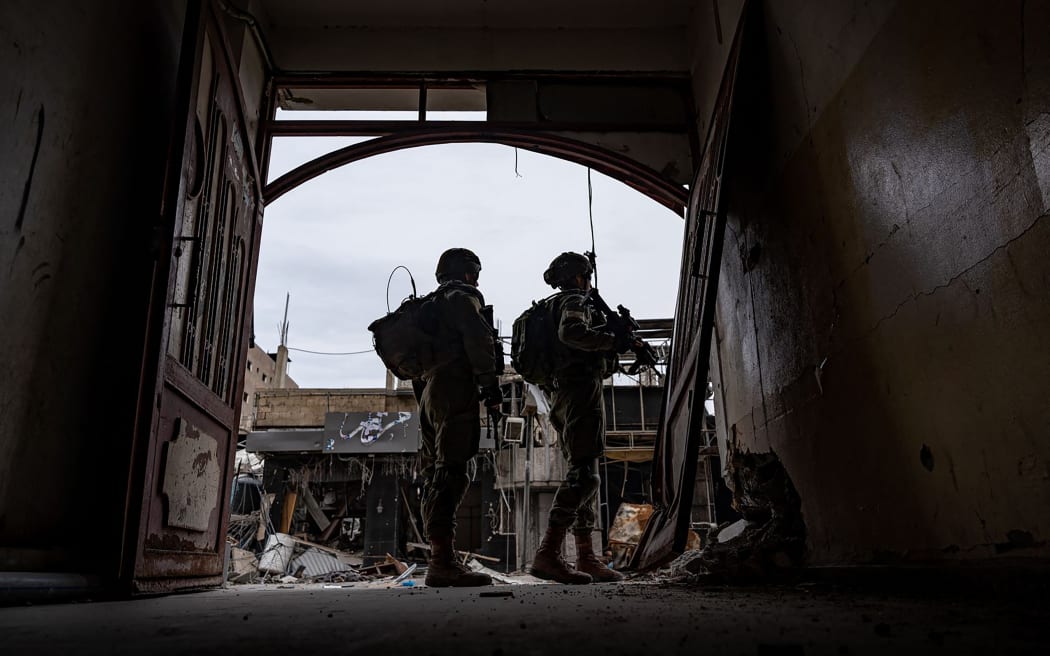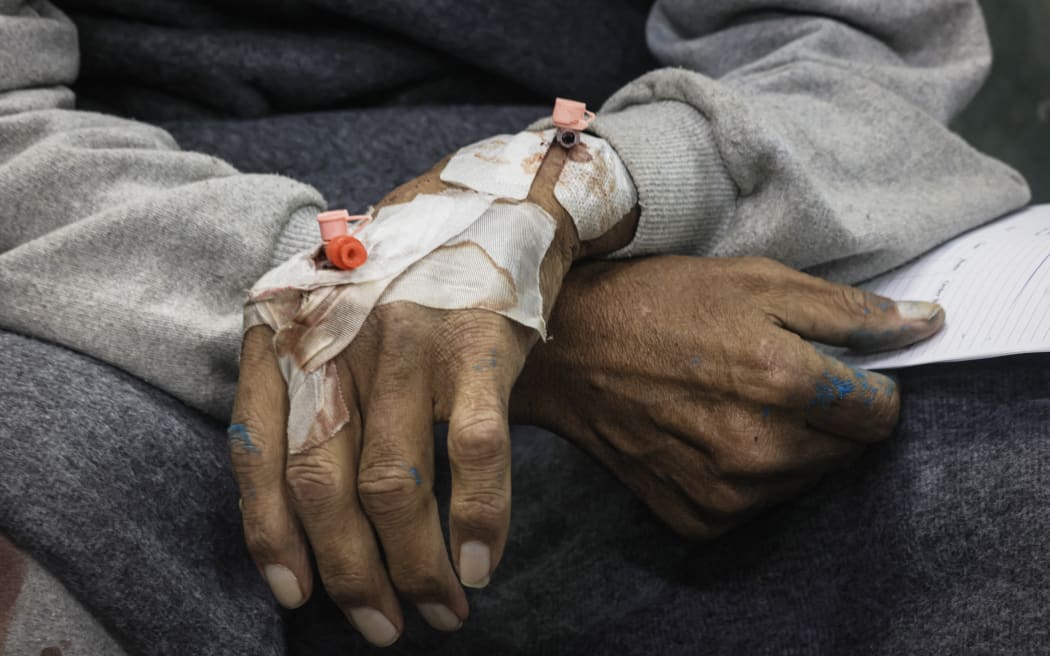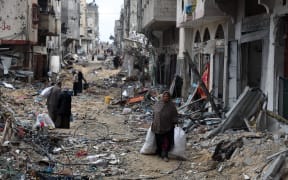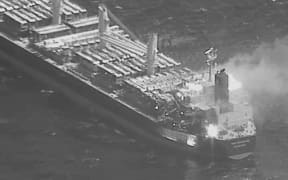By Lyse Doucet for the BBC

Israeli army soldiers in an unspecified location in the Gaza Strip amid ongoing battles between Israel and the Palestinian militant group Hamas. Photo: Israeli Army / AFP
An internal UN report seen by the BBC has described widespread abuse of Palestinians who were captured and interrogated at makeshift Israeli detention centres during the ongoing war in Gaza.
The draft document compiled by the United Nations Relief and Works Agency (UNRWA), the main UN agency supporting Palestinians, includes detailed testimony from detainees who described an extensive range of ill-treatment.
They included being stripped and beaten, being forced into cages and attacked by dogs, forced into stress positions for extended periods, and subjected to "blunt force trauma" including the butts of guns and boots, resulting in some cases in "broken ribs, separated shoulders and lasting injuries".
It said both men and women reported "threats and incidents of sexual violence and harassment" including inappropriate touching of women and beatings to men's genitals.
In a statement provided to the BBC, the Israeli Defense Forces (IDF) said: "The mistreatment of detainees during their time in detention or whilst under interrogation violates IDF values and contravenes IDF and is therefore absolutely prohibited."
It rejected specific allegations including the denial of access to water, medical care and bedding. The IDF also said that claims regarding sexual abuse were "another cynical attempt to create false equivalency with the systematic use of rape as a weapon of war by Hamas".
In earlier statements to the New York Times and Guardian newspapers, the Israeli military said it was aware of deaths in detention, including those with pre-existing illnesses and wounds, and said every death was being investigated.

A Palestinian man who was released along with other civilians by Israeli forces after being rounded up for questioning receives treatment at Rafah's Al-Najjar hospital in the southern Gaza Strip on 12 January, 2024. Photo: Mahmud Hams / AFP
UNRWA's accounts tally with other reports of abuse in Israeli detention centres recently published by Israeli and Palestinian human rights groups as well as separate UN investigations.
This latest UN report, which has not been published yet, was based on interviews with more than 100 detainees, part of a group of about 1000 detainees Unrwa was able to document since December after they were freed from three Israeli military sites. They included people - both male and female - between the ages of six and 82, including 29 children.
The agency explained that this information was obtained during its role co-ordinating humanitarian aid at the Kerem Shalom crossing point between Gaza and Israel where the IDF has been releasing detainees. Information was also said to have been provided "independently and voluntarily" by Palestinians released from detention.
In a comment sent to the BBC it described the allegations as "shocking but unsurprising".
The report said many Palestinians were apprehended in northern Gaza as they took refuge in hospitals or schools or as they tried to flee south to find shelter. Others were Gazans with work permits to enter Israel. They were stranded in Israel when war broke out and were later detained.
Unrwa estimates that more than 4000 Palestinians have been rounded up in Gaza since the start of hostilities sparked by the Hamas attack on 7 October when nearly 1200 Israelis, mostly civilians, were killed, and more than 250 Israelis and foreigners were taken hostage.
In the war which followed, now in its fifth month, more than 30,000 Palestinians have been killed according to Gaza's Hamas-run health ministry.
Unrwa itself has been the focus of inquiry during this war. Israel has repeatedly accused it of supporting Hamas and hiring its members.
The UN agency, whose 13,000 staff are regarded as the backbone of humanitarian operations in Gaza, has denied the charges. But it immediately terminated the contracts of employees accused in an Israeli document of playing a part in the 7 October attacks.
The claims, also being investigated by the UN, led nearly 20 countries and institutions to suspend funding. But the EU recently resumed its support and others are reportedly preparing to do so.
"Unrwa is facing a deliberate and concerted campaign to undermine its operations, and ultimately end them," Commissioner General Philippe Lazzarini recently told a special meeting of the UN General Assembly amid calls in Israel for the agency to be dismantled.
In the introduction to its internal report, UNRWA highlighted that it was not a comprehensive account of all the issues regarding detentions during the war, including hostages held by Hamas, or other concerns regarding the treatment of hostages in Gaza by Palestinian armed groups.
- This story was first published by the BBC





